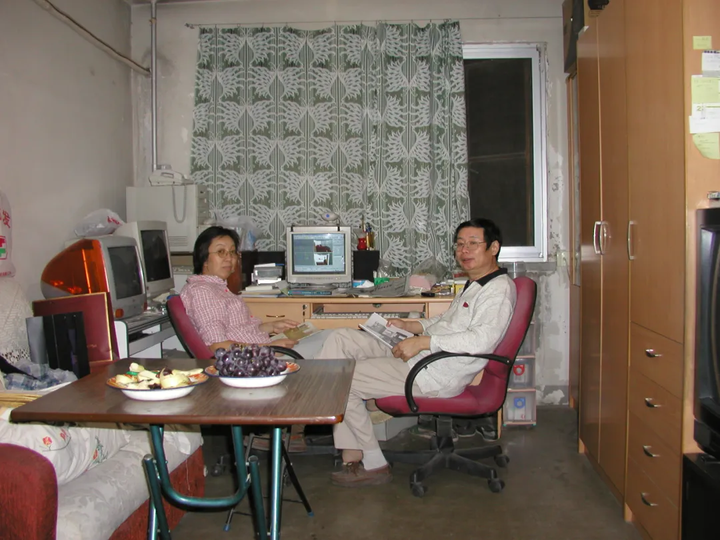Navigating New Zealand's Green List Immigration: A Chinese PhD's Journey

Staff Writer: Yiyi Xie
Image Source: supplied
New Zealand's Green List immigration pathway has long been seen as a "golden ticket" due to its focus on high-demand professions, offering a much smoother process compared to skilled immigration.
However, there’s a common belief in New Zealand that the higher your education, the harder it is to find a job. So, does having a PhD and being in a Green List profession guarantee residency?
Today, we interviewed *Dan, a Chinese living in New Zealand, to hear his immigration story.
From Europe to a Small New Zealand Town for Studies
In October 2023, after almost a year of waiting, Dan finally received his New Zealand residency visa—five years after his first arriving in the country.
Originally from Wenzhou, Zhejiang, Dan graduated with a degree in food science from Zhejiang Agricultural University in 2015. He then headed to the Netherlands, a country known for its flowers, to pursue a master's degree in the same field.
Despite speaking only basic Dutch, Dan found that English was widely spoken in the Netherlands, making both his studies and everyday life easy to navigate.
European universities are known for their rigorous academic standards, and after completing his two-year master’s program, Dan decided to continue in academia. However, when applying for PhD programs, he discovered that many European universities prioritize giving scholarships to students from EU countries.

Another option for securing a scholarship was China's government-sponsored study abroad programs, but Dan decided against it due to the restrictions involved.
“I wasn’t sure at the time where I wanted to work after my PhD, and I didn’t want to limit myself,” he explained.
Instead, he began looking at other countries. Compared to Europe, PhD scholarships in New Zealand and Canada were more accessible for Asian students. So, why did he choose New Zealand?
“In the end, I picked New Zealand because of the great weather,” he said with a smile.
In early 2018, Dan arrived in New Zealand and began his fully funded PhD program at Massey University’s Palmerston North campus, a journey that would last over three years.
A Smooth Path to Residency
New Zealand is often jokingly referred to as a “big countryside,” and those living outside its major cities feel this especially strongly. Massey University’s Palmerston North campus is located in a town of about 100,000 people. There’s not much entertainment, but the town’s quiet atmosphere makes it an ideal place for study.

"Living in a small town means you can drive to a friend's house in just a few minutes. The essentials are all there, but it can feel a bit dull at times,” Dan shared.
When asked about the difference between study in New Zealand and Europe, Dan noted that it feels slightly easier in New Zealand.
“There was a lot of competition when I applied for the PhD, with applicants from all over the world. But once I started, the pressure wasn’t as intense as I had imagined. The university didn’t require publications for graduation, either.”
That said, Dan still studied hard. "During the PhD, there are small victories along the way, like passing your mid-term review or making progress in experiments, but you can’t really relax until you have that diploma in your hands."

Dan successfully graduated at the end of 2021, describing the PhD process as "overall not too difficult." But finding a job—especially without local New Zealand work experience—was a different story.
He sent out numerous applications and quickly learned that many New Zealand companies don’t place a high value on academic qualifications. Instead, they prioritize professional experience.
Language also posed a challenge. Despite years of living and studying abroad, working in an English-speaking environment was different from studying in one.
“There aren’t many large companies in New Zealand, and most businesses don’t require the kind of complex research and development that would need a PhD,” Dan observed. “Like many people say, being overqualified can be an issue here.”
Fortunately, Dan soon received an offer from a pet food company, though it was based in an even smaller town than Palmerston North.
In late 2022, he applied for New Zealand residency through the Green List's “Straight to Residency” pathway, under the role of "food technologist."
Although the Green List is designed to fast-track residency for critical roles, Dan’s process was delayed. His employer was a newly established company and had not yet endowed accredited employer, which slowed the application down.
At the time, New Zealand’s immigration system was facing heightened scrutiny due to reports of exploitation linked to accredited employer work visas. The immigration office tightened its process, and Dan’s company spent six months navigating the accreditation procedure.
On top of that, the National Security Check (NSC) added further delays. It took nearly a year before Dan finally received his residency visa.
This past Easter, Dan left the small town and moved to Christchurch, where his new company offered a higher salary and accommodation benefits. For now, he’s settled in Christchurch and is ready for the next chapter of his life in New Zealand.



